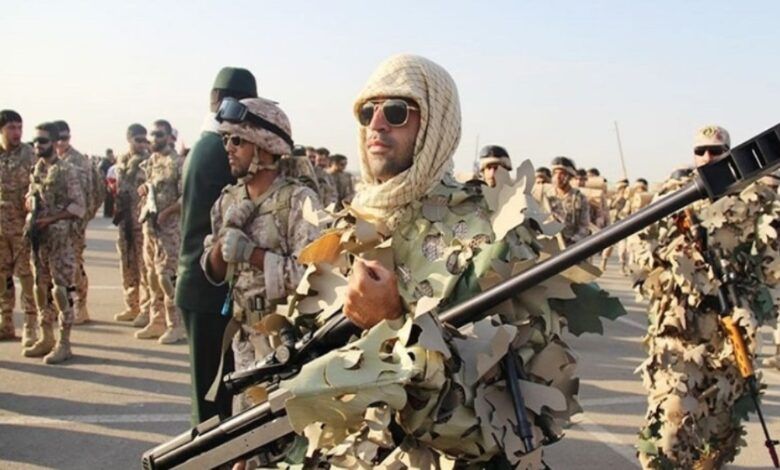Iran embraces jingoistic sabre-rattling yet again, but Baku remains steadfast

By Orkhan Amashov
Azerbaijan and Iran cannot afford being in an open military confrontation. Any period of heightened tension that may ensue between the two nations, on occasion, will be limited both in time and the degree of aggravation. Nevertheless, it remains true that Iran was aghast to comprehend the seismic regional geopolitical shift that occurred after the Second Karabakh War and will continue to counteract Baku’s gradually emboldening assertiveness.
There is nothing unusual in showing off one’s military mettle via parades and drills. With Iran, however, this has recently assumed a form of slightly infantile jingoistic sabre-rattling for which loose pretexts could be found easily at a whim. In fact, the close relations between Azerbaijan and Israel constitute one factor that Tehran has readily capitalised on over the past year. On 4 October, the Commander of the Iranian Revolutionary Guard Corps (IRGC), Ramazah Zirahi, described Azerbaijan as one of the countries in the region where the enemies of the Islamic Republic could find refuge.
Baku’s determination to pave the way for the Zangazur project, a multi-modal transport corridor, aimed, amongst other things, at connecting Azerbaijan’s mainland with its Nakhchivan exclave, forms another boiling point of contention, in relation to which Tehran appears to be firmly in league with Yerevan. During the recent escalation on the Azerbaijani-Armenian state border on 12-14 September, Iran increased its concentration of armoured units near the Araz River which, for many, was a further unequivocal sign of support for Yerevan.
Following the meeting of Azerbaijani President Ilham Aliyev and Iranian President Ebrahim Raisi, which took place on the margins of the Sixth Summit of the Conference on Interaction and Confidence-Building Measures in Asia (CICA) on 13 October, Tehran reiterated its resolute opposition to any attempts to change the transit route between itself and Armenia.
This was followed, almost immediately, by the announcement of a large-scale military exercise in the north of the country by the Commander of the IRGC Ground Forces, Brigadier General Mohammad Pakpour. Then ensued a three-day military drill, codenamed “IRGC Ground Forces Might ''.
If, to judge by the belligerent rhetoric employed in the comments by Iranian officials and through some of the social networks believed to be closely linked with the authorities in Tehran, the key message was to “remind everybody that Iran won’t tolerate any threat to its national security”. Azerbaijan was understandably predominant amongst the targeted nations.
Any military drill, in particular, a showy large-scale example, is a form of expression of a certain intent. Tehran’s mode of expanding its influence in the wider region, in addition to “soft power” media, mandates supporting proxy allies militarily. With Azerbaijan, Iran needs to assert the debilitating effects of incurring its wrath, if the Islamic Republic’s self-declared “red lines” are traversed. Hence, the latest drill was rather extensive in its components, including heliborne parachute operations, night raids, helicopter combat and suicide drone operations.
These war games also serve the purpose of achieving internal consolidation, in which Iran is currently rather lacking. The volatile state of affairs inside the country mandates the critical importance of the display of strength and firmness of purpose.
Over the years, in its relations with Azerbaijan, Iran has wilfully cultivated the image of a snobbish sanctimonious nation with a sense of mission. It has consistently employed a mix of superficially friendly pleas, covert threats, attempts to subvert secularism and overt reprimands to lure Baku into its sphere of influence. For all its deep frustration over failing to export the ideals of the Islamic Revolution to its northern neighbour, it has not ceased to espouse marginal religious groups in Azerbaijan to perpetuate its supercilious religious creeds.
Azerbaijan and Iran will very likely remain in a tug-of-war state in the foreseeable future, but there are practical solutions to some of the points of contention between the two states. Baku has already shown its willingness to accommodate Iranian interests by signing a Memorandum of Understanding, establishing new transportation and electricity supply links, connecting mainland Azerbaijan and Nakhchivan, via Iran, on 11 March 2022.
This ushered in a brief period of content which later gave way to the current situation. For Iran to come to terms with the Zangazur project, a confluence of diplomatic persuasion and compulsion will need to be applied.
Firstly, the concept that the overland passage connecting Azerbaijan’s mainland with Nakhchivan obstructs Iran’s route to Armenia is completely erroneous. What Iran does not want is to lose its privilege of being the only conduit providing Azerbaijani access to its exclave.
Secondly, the new map of connectivity pursued by Azerbaijan is, for all its ambitious drive, what the post-2020 conjecture of the region demands. International support is currently not overwhelming, but there is a critical mass of backing being incrementally entrenched, with Turkish and Russian involvements displaying common tendencies. It is more than a likely probability that Iran will eventually have no option but to budge. As Neil Watson, British Journalist, commented: “The Islamic theocratic regime in Iran feels threatened by all sides at the current juncture. It is posturing, but ultimately it must accept the new reality.”
---
Follow us on Twitter @AzerNewsAz
Here we are to serve you with news right now. It does not cost much, but worth your attention.
Choose to support open, independent, quality journalism and subscribe on a monthly basis.
By subscribing to our online newspaper, you can have full digital access to all news, analysis, and much more.
You can also follow AzerNEWS on Twitter @AzerNewsAz or Facebook @AzerNewsNewspaper
Thank you!
